
15 Crm Business Success Stories [2025]
A Customer Relationship Management (CRM) software keeps track of prospects, clients and their contacts and also helps you monitor your sales pipeline as well as to create reports for business intelligence.
The CRM market is a $50B and growing industry.
In this list, you'll find real-world CRM business success stories and very profitable examples of starting a CRM business that makes money.
1. Efficy ($25.2M/year)
Cédric Pierrard, founder of Efficy, came up with the idea for his European CRM company after realizing the limitations of the software he was working with at his previous company. He and his colleague, Robert Houdart, decided to create a highly customizable, easily upgradable, and 100% SaaS-based CRM solution. After launching with existing customers and offering a special migration offer, Efficy has grown to nearly 200 employees and achieved a turnover of €22.4M in 2019. Their ambitious goal is to be 5 times bigger and represent 5% of the European CRM market in the next 5 years.
How much money it makes: $25.2M/year
How many people on the team: 200
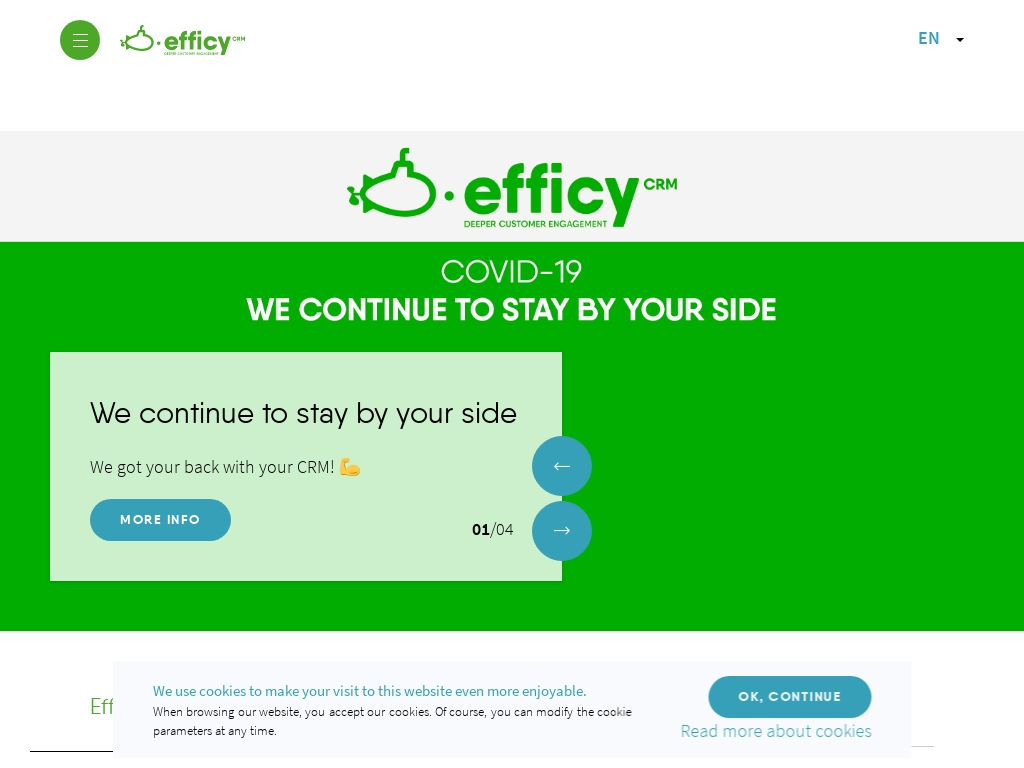

Efficy, a European CRM software publisher founded 15 years ago by Cédric Pierrard, has seen €24M in revenue in 2019 and seeks to be 5 times bigger within five years, representing 5% of the European CRM market, having experienced success through organic growth and external mergers while maintaining a strong focus on core business.




2. Owner ($20M/year)
Adam Guild, co-founder of Owner.com, began his entrepreneurial journey early by running a successful Minecraft server and later dabbling in game development. His inspiration for Owner.com stemmed from a more personal experience—watching his mother struggle to attract customers to her small service business. Using his knowledge of growth hacking acquired from the gaming world, he developed tools to help her improve her business’s online presence and customer acquisition.
Realizing that his solutions had broader applications, Adam extensively reached out to other small business owners to understand their challenges. Initial feedback validated the potential of his offering, encouraging him to refine and tailor his product specifically for restaurant owners. The biggest hurdles came during the COVID-19 pandemic, which forced him to pivot from focusing on in-store traffic solutions to developing an online ordering system that addressed new market pain points.
Key lessons Adam learned include the importance of deeply understanding the end-users' needs and being adaptable in the face of changing market conditions. These insights allowed him to survive challenging periods and ultimately build a platform that resonated well with its target users.
How much money it makes: $20M/year
How many people on the team: 50
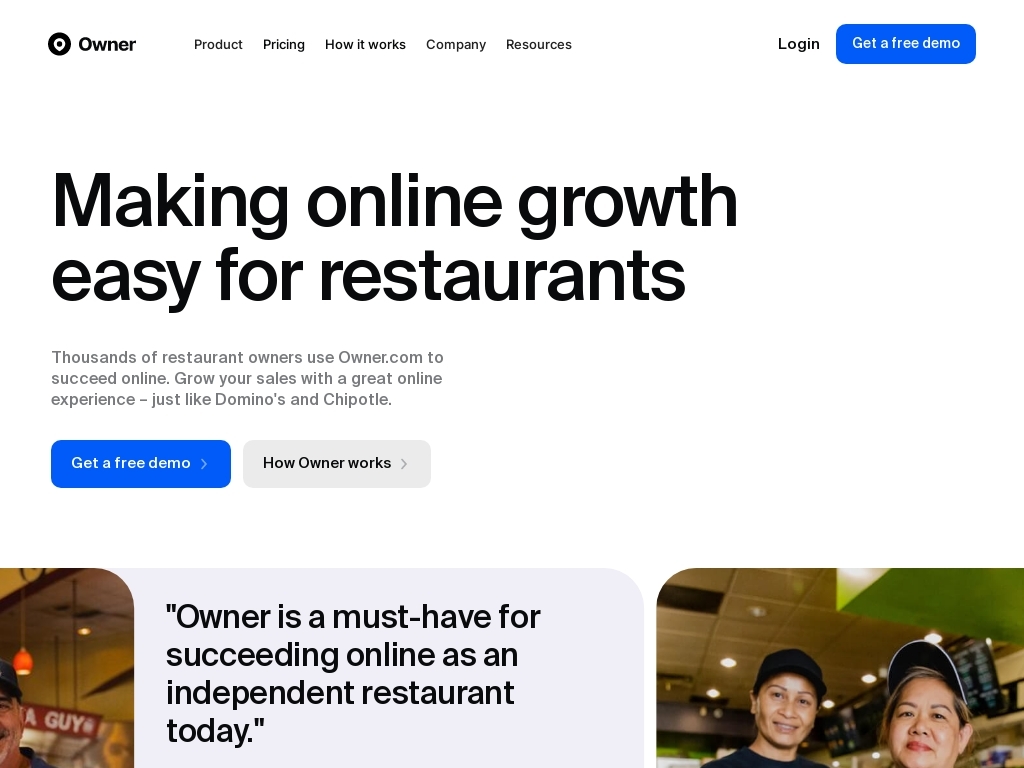

Learn how a high school dropout built Owner.com from a personal pain point to generating over $20M/year in revenue, saving restaurants 20%-30% on fees, and transforming customer acquisition through radical persistence and strategic pivots.




3. Promys ($4.5M/year)
In starting their business, the founder realized the need for a workflow system to offset the complexity of a growing company. Unable to find a suitable solution in the market, they had their development team build the first version and eventually spun it out as a focused business. Throughout the process, they emphasized the importance of getting an early version of the product to customers to gather feedback and make necessary adjustments.
How much money it makes: $4.5M/year
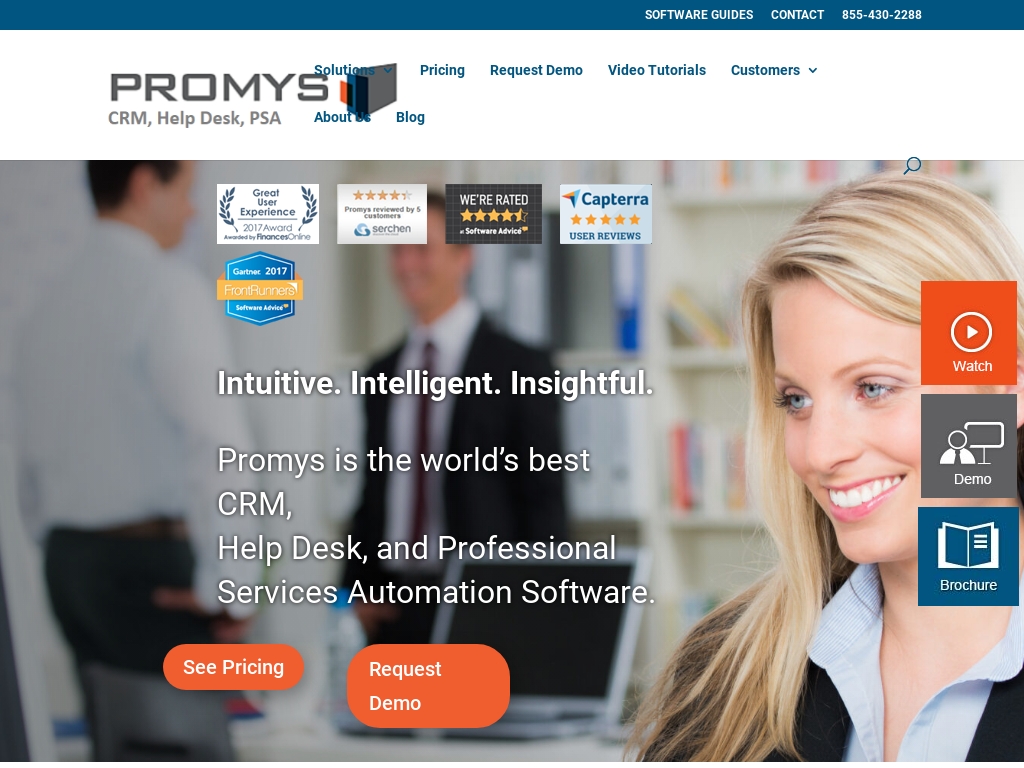

This case study follows a serial entrepreneur's journey in the Information Technology industry, where he founded successful companies such as UNIS LUMIN and Promys, and offers advice to aspiring founders, emphasizing the importance of adjusting to changing markets and learning from early customers' input.




4. noCRM.io ($2.64M/year)
Sunny Paris, co-founder of noCRM.io, came up with the idea to create a lead management software after realizing the limitations of traditional CRM software during his time with Yoolink. Despite the competitive CRM market, Sunny saw an opportunity to bring something new and more efficient to salespeople. The company has since grown to $2.4M in annual recurring revenue and has a customer base of over 11,000 salespeople worldwide.
How much money it makes: $2.64M/year
How much did it cost to start: $80K
How many people on the team: 19
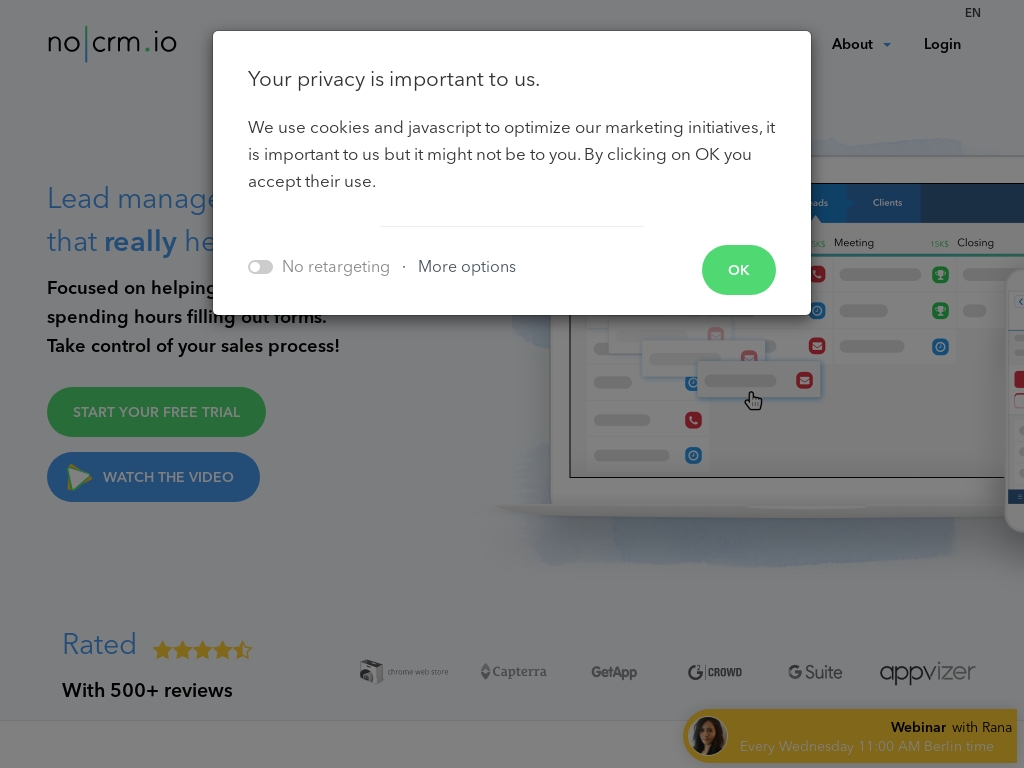

This case study is about noCRM.io, a French SaaS company with over 11,000 salespeople using their software worldwide, that provides a lead management software for salespeople, and has managed to build its business up to $2.4M in annual recurring revenue and $200K in average monthly revenue.




5. GreenRope ($1.92M/year)
metrics for our business are our customer satisfaction and retention rates, which remain consistently high. We currently have over 1,000 customers in over 20 countries, ranging from startups to universities and municipalities. Moving forward, we plan to continue evolving and improving our platform to meet the changing needs of businesses and provide even greater value to our customers.
How much money it makes: $1.92M/year
How many people on the team: 15
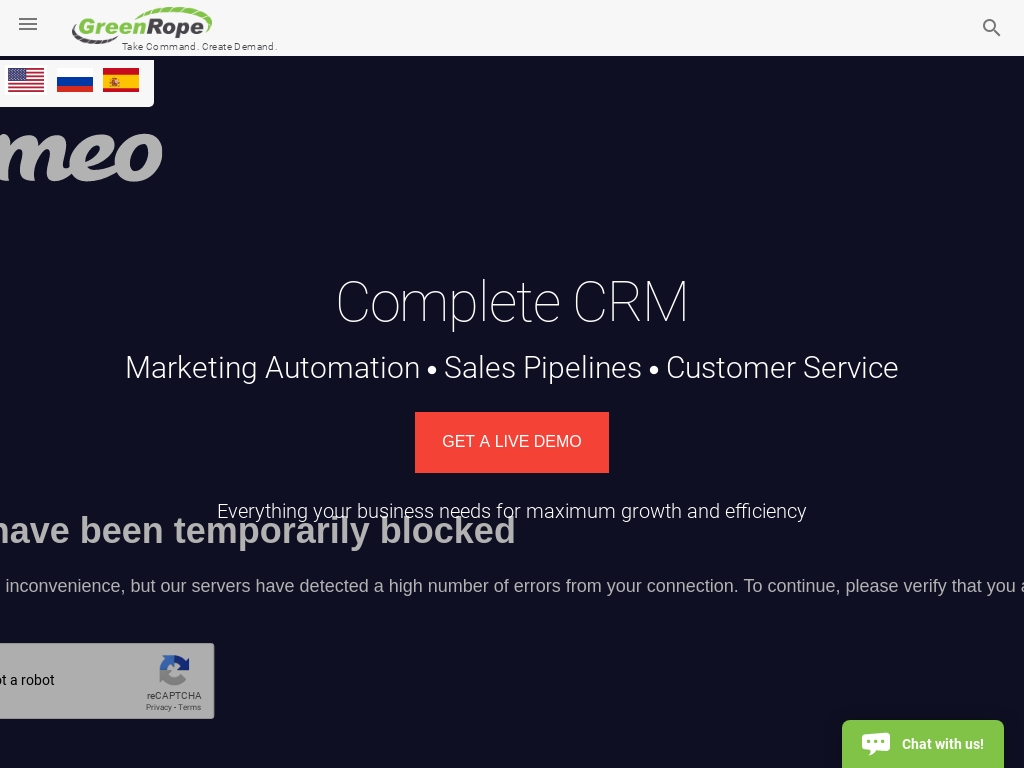

GreenRope, a self-funded CRM and marketing automation platform with over 1,000 customers in 20 countries, was built organically and focused on creating a positive, customer-centric culture without outside investment, with an all-in-one interface solving challenges in managing sales, marketing, customer service, and operations.




6. Studio Ninja ($1.8M/year)
Chris Garbacz, a professional wedding photographer, came up with the idea for Studio Ninja after experiencing various challenges in his photography business, including forgetting his camera bag on a wedding day. He realized the need for a user-friendly and comprehensive solution to manage his leads, clients, contracts, and invoices, leading him to create Studio Ninja, the world's most user-friendly photography business management app. With 7,000 active subscribers and monthly recurring revenue of $150,000, Studio Ninja has become a successful tool for photographers worldwide.
How much money it makes: $1.8M/year
How much did it cost to start: $75K
How many people on the team: 13

Studio Ninja is a photography business management app that has achieved 6 years of success, with 7,000 active paying subscribers and monthly recurring revenue of $150,000, thanks to co-founder Chris Garbacz's experiences and failures as a wedding photographer and serial entrepreneur.




7. Minor Workshop ($1.44M/year)
Paul discovered his business idea while working at an e-commerce company in 2012, where he transformed team efficiency using Asana, leading to a validating bonus from his employer. This insight into productivity tools eventually grew into a consulting business that now generates $90,000 monthly.
How much money it makes: $1.44M/year
How much did it cost to start: $500
How many people on the team: 1
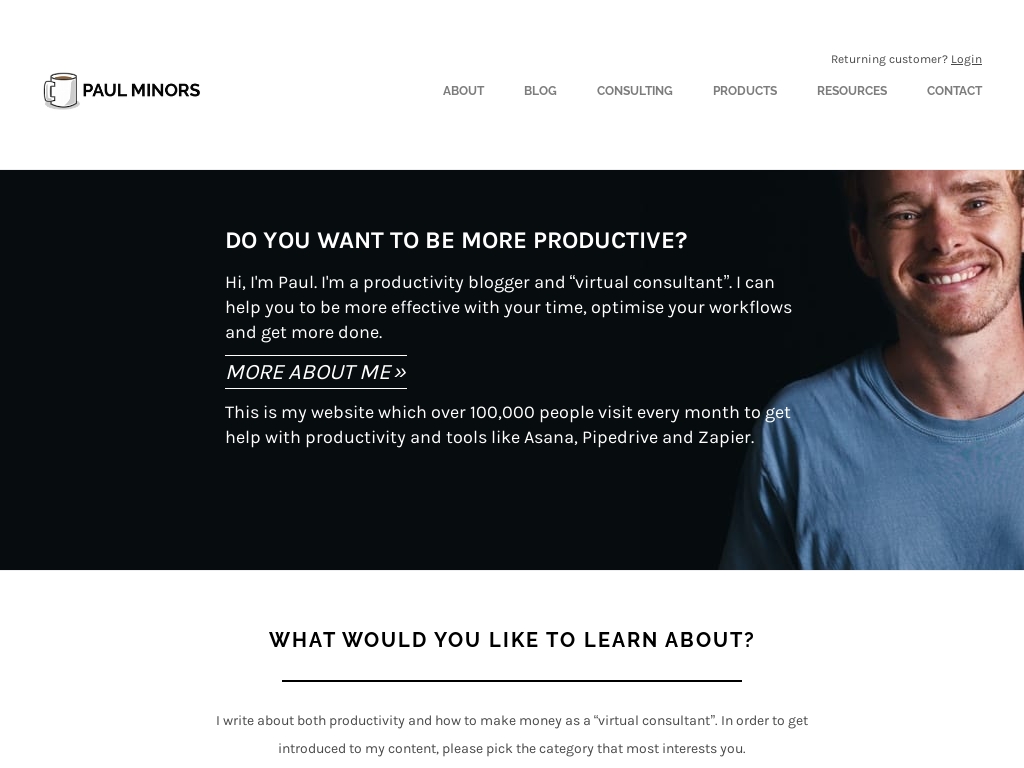

This case study article showcases the success story of Paul, who built a profitable consulting business focused on Asana and Pipedrive, generating around $90,000 in monthly sales from consulting and subscription fees, with a margin of 80% and a customer base ranging from solo operators to big enterprise clients.




8. Qwaiting ($792K/year)
Rohit Garg, co-founder of QWaiting, came up with the idea for his business after experiencing long waits and frustrations at restaurants. Recognizing the common problem of excessive customer wait times, Garg developed QWaiting to help businesses manage queues and improve customer experiences. With a team of over 50 members and an average monthly revenue of $66k, QWaiting has gained traction in industries such as banks, hospitals, retail stores, airports, and public sector enterprises.
How much money it makes: $792K/year
How many people on the team: 50
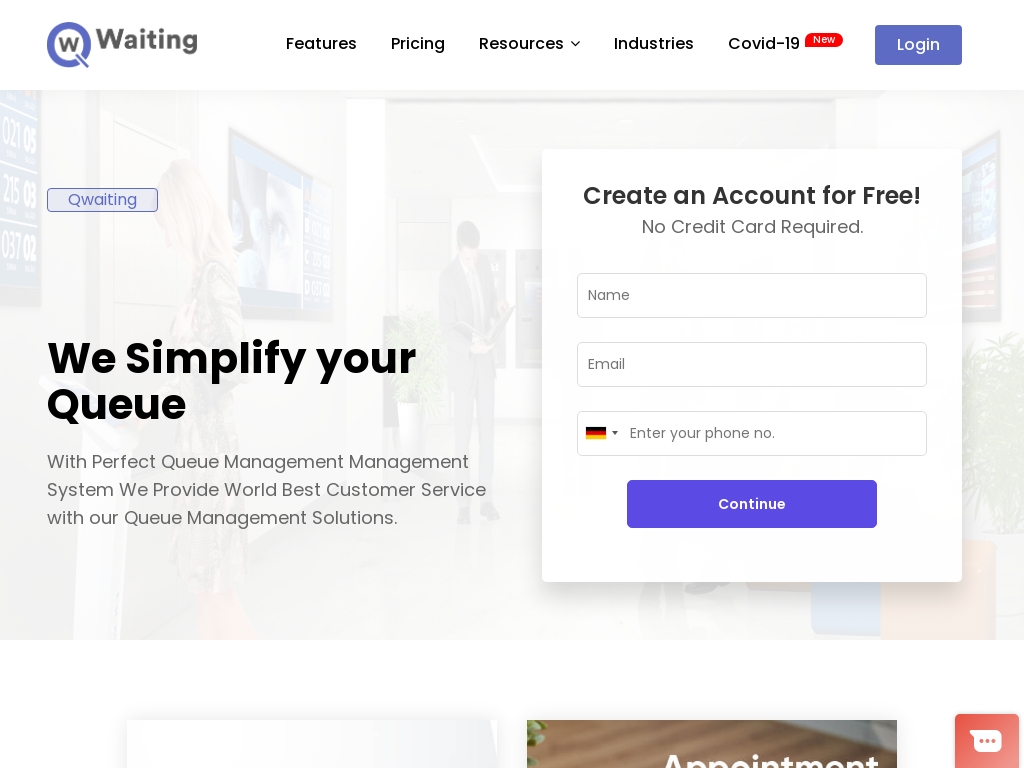

Singapore-based Qwaiting's cloud-based queue management software helps businesses manage customer queues, reduce wait times, increase productivity and improve visitor experience. With average monthly revenue of $66k, Qwaiting has attracted 500+ clients and specialises in data analytics reporting, customer feedback support and centralised management.




9. Followup CRM ($720K/year)
Erick Vargas, along with Best Roofing CEO Gregg Wallick, came up with the idea for Followup CRM while re-engineering the sales department of Best Roofing. They realized that there was no CRM solution tailored to the unique needs of the construction industry, so they created Followup CRM to help construction companies modernize their sales process and win high-margin bids. With $50,000 in monthly recurring revenue and a focus on customer value, Followup CRM is steadily growing.
How much money it makes: $720K/year
How many people on the team: 0
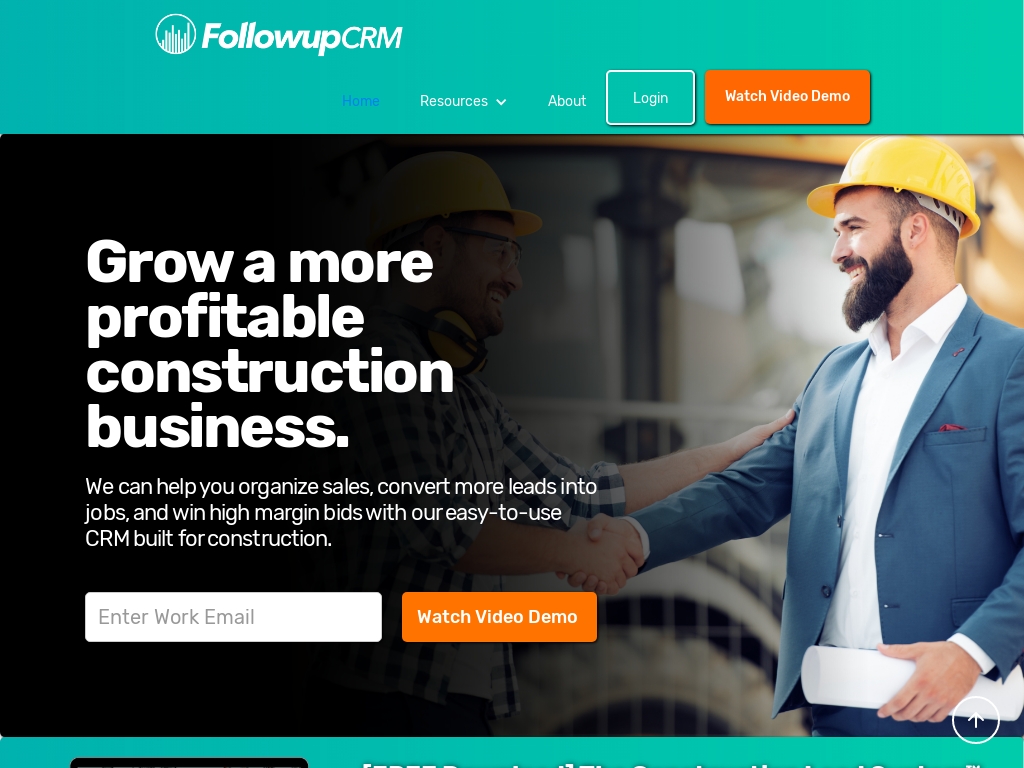

Followup CRM is a cloud-based application designed by construction professionals to help modernize the industry and is generating $50k in monthly recurring revenue by helping construction companies organize sales and convert more leads into jobs.




10. Workbooks CRM ($600K/year)
John Cheney, CEO of cloud-based CRM platform Workbooks, recognized the issues faced by mid-sized businesses with limited IT budgets and in-house IT teams. Seeing a gap in the market, he developed Workbooks to provide a cost-effective solution that offers a comprehensive range of functionalities typically found in more expensive platforms like Salesforce or Microsoft Dynamics. With an initial investment of £2 million and ongoing support from Angel Investors totaling £8 million, Workbooks has grown to serve over 1,400 customers across 30 countries.
How much money it makes: $600K/year
How much did it cost to start: $1M
How many people on the team: 55
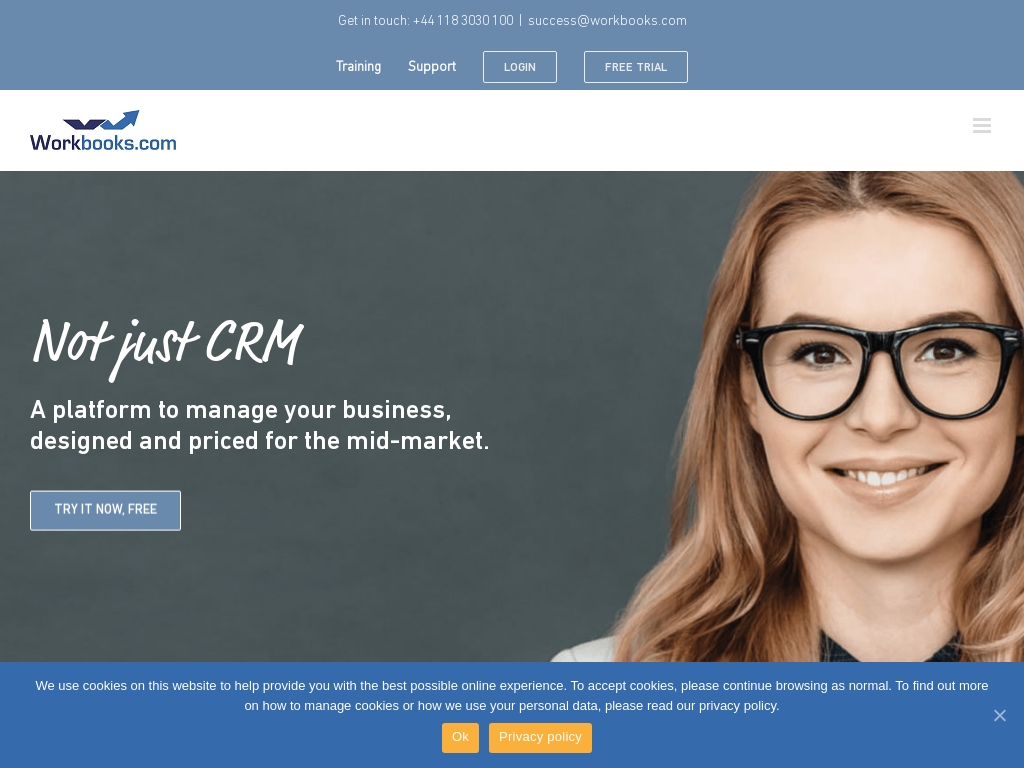

Workbooks CEO, John Cheney, shares how he identified a gap in the market for affordable CRM solutions for mid-sized businesses and, after raising over £8m in seed capital, expanded globally, serving over 1,400 customers across 30 countries.




11. CompanyHub ($480K/year)
Abhishek A Agrawal, the founder of Integrately and CompanyHub, initially started with a service-based software company in 2010. After struggling with finding a suitable and user-friendly CRM for his sales team, he decided to build his own CRM, CompanyHub. Recognizing the need for easy integrations between different apps, Agrawal launched Integrately, which quickly acquired approximately 1,500 paid customers within a month of its beta launch. The success of these ventures validated the idea that people are searching for simple and automated processes.
How much money it makes: $480K/year
How much did it cost to start: $100K
How many people on the team: 20
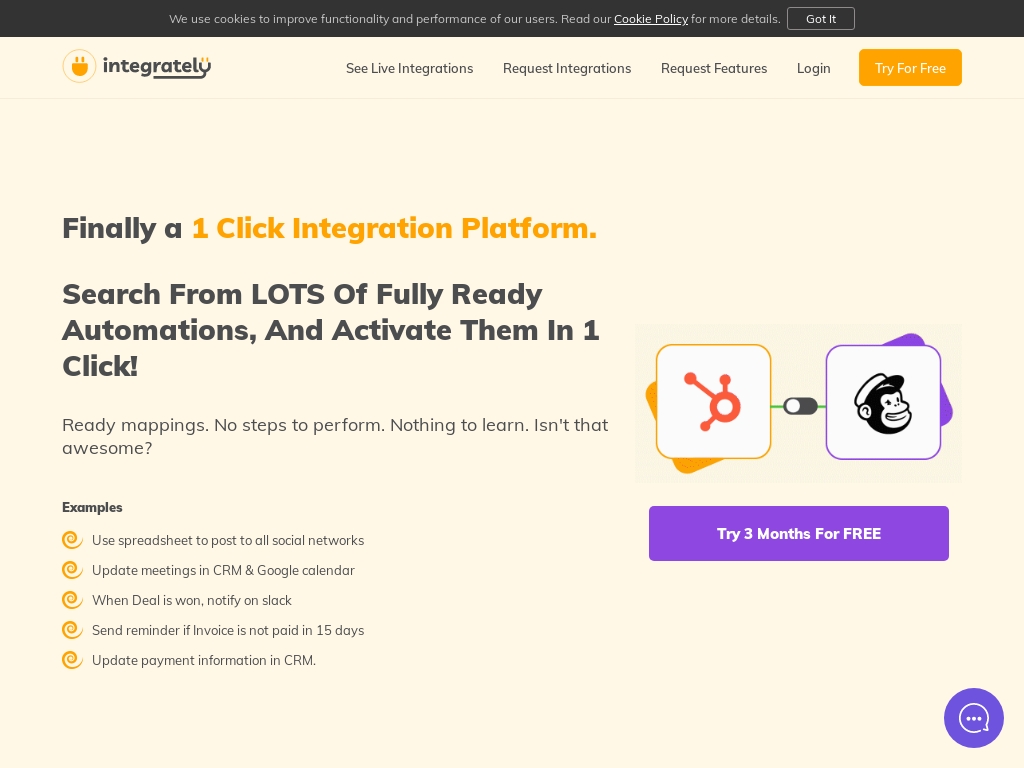

Integrately founder Abhishek A Agrawal built a 1-click integration platform which acquired around 1,500 paid customers within the first month of its launch, showing that people are looking for an easy way to automate their processes.




12. EspoCRM ($360K/year)
Oleksii Avramenko, one of the founders of EspoCRM, noticed a gap in the market for a universal and affordable CRM solution for small and mid-size businesses. With previous experience in the CRM industry, Avramenko and his team created EspoCRM, which has since seen significant success with an average of over 16,000 downloads per year and earning up to $30k a month. Through their innovative approach and dedication to customer satisfaction, EspoCRM has become a go-to CRM application for businesses looking to improve efficiency and performance.
How much money it makes: $360K/year
How much did it cost to start: $10K
How many people on the team: 1
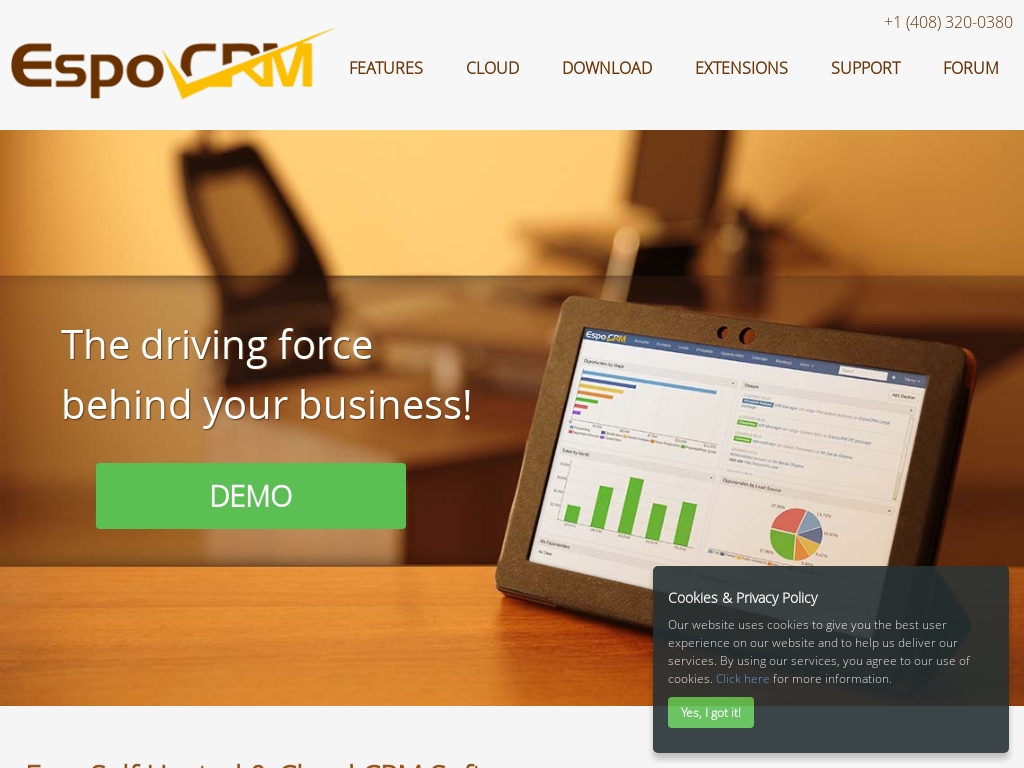

EspoCRM, an open-source CRM application for small and mid-size businesses, has seen an average of over 16,000 downloads per year and makes up to $30k per month, offering efficient tools to systematize customer data, improve sales cycles, and automate routine administrative tasks.




13. Groundhogg ($300K/year)
Adrian Tobey realized there was a significant gap in the WordPress ecosystem for an integrated CRM and marketing automation tool while working at his parents' digital marketing agency. He frequently encountered frustrations with existing solutions, particularly Infusionsoft, which had clunky and outdated web forms. This pain point inspired him to initially create a simple solution for better forms, which evolved into a broader vision.
To validate his idea, Adrian engaged with the WordPress community and his network of agency clients, identifying recurring issues and gauging interest in a comprehensive solution. He built the initial version of Groundhogg himself and released it to gather user feedback. The positive response and constructive criticism helped him refine the product, making it more robust and user-friendly.
Challenges like customer skepticism and the complexity of educating users about the new self-hosted CRM model were significant. However, Adrian relied on organic growth strategies like podcast appearances and engaging in industry-specific groups, which also offered crucial user feedback. The key lesson was the importance of directly addressing identified customer needs and continuously iterating based on real-user experiences.
How much money it makes: $300K/year
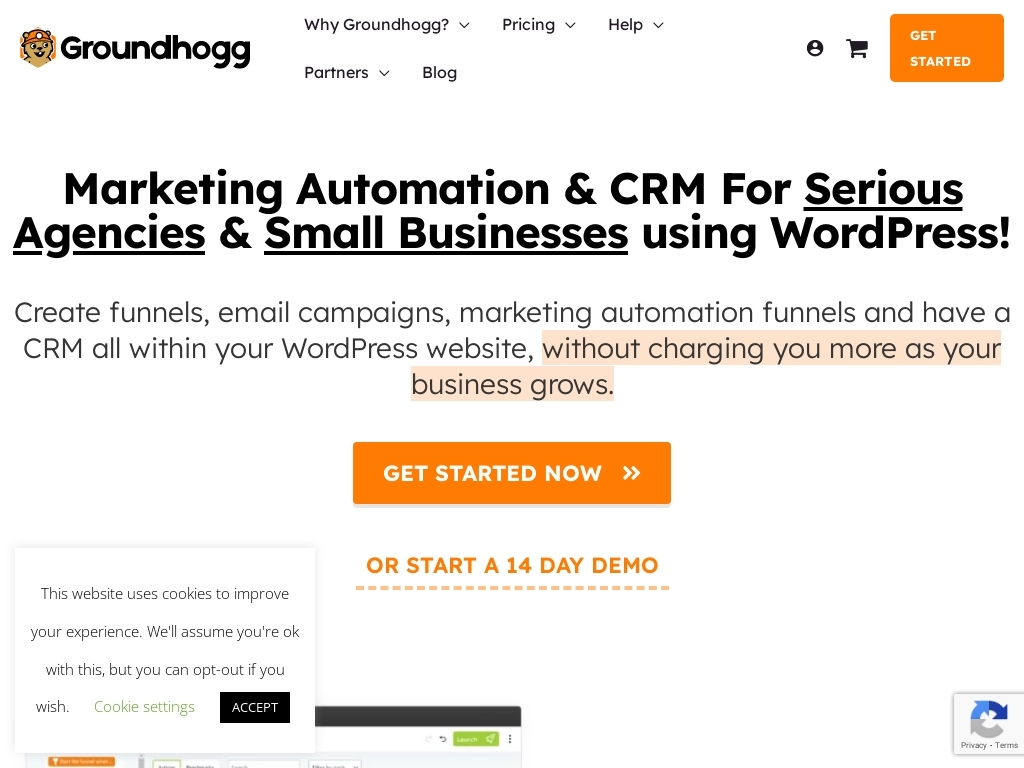

Discover how a college dropout turned a family loan and WordPress frustrations into Groundhogg, a CRM and marketing automation tool that reached over 1,200 clients and $25,000 in monthly recurring revenue by leveraging organic growth strategies like podcasts and industry-specific Facebook groups.




14. OneHash, Inc. ($144K/year)
Rohit Gadia, co-founder of OneHash Inc, came up with the idea for their business, OneHash CRM and OneChat, based on the concept of FaaS (FOSS as a Service), which provides the benefits of SaaS at the affordability of FOSS. The company started with a two-person team and a modest investment of $2 million from their savings, and despite initial obstacles, OneHash now has over 410,000 signups and aims to have 10 million users within the next 10 years.
How much money it makes: $144K/year
How much did it cost to start: $10K
How many people on the team: 7
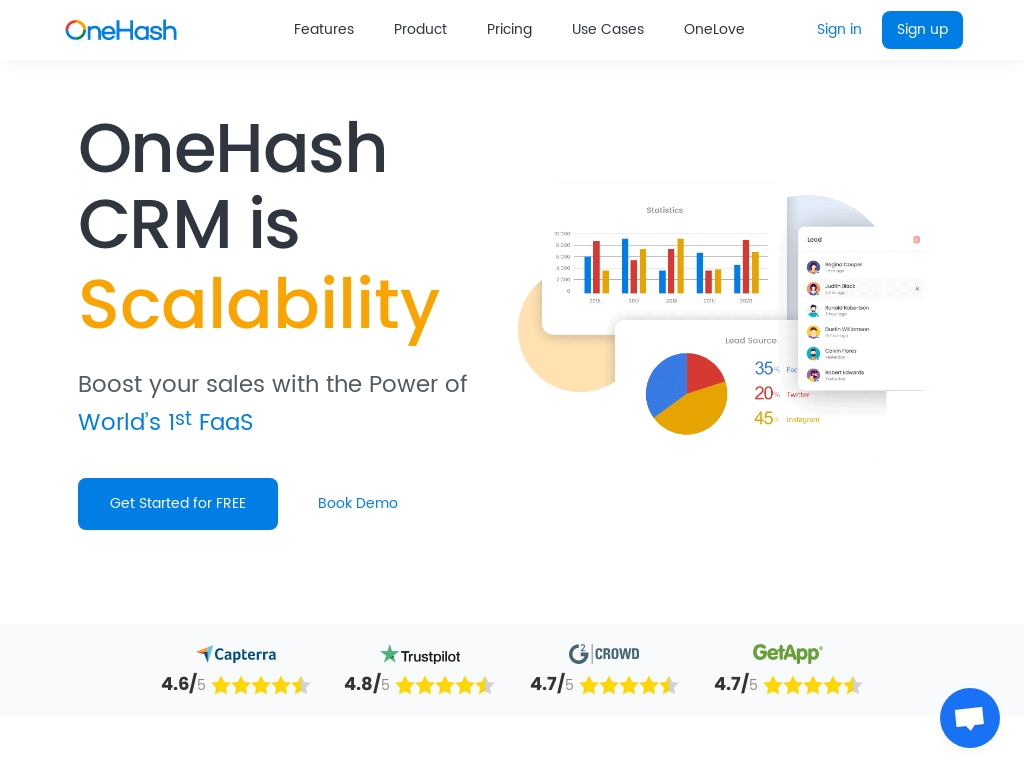

OneHash Inc. is a startup that offers affordable FOSS+ SaaS CRM and customer assistance services, with powerful reporting features as well as scalability and extendibility, and currently has over 410,000 signups from all seven continents.




15. TeleCRM ($60K/year)
Rahul, the co-founder of Flamon Cloudtech, came up with the idea for TeleCRM while struggling to manage salespeople for his previous SaaS product. Frustrated with the limitations of existing CRM systems, he envisioned a CRM that would simplify data entry and analysis for sales executives. After validating the idea with 800 business owners and spending over 2.5 years developing the product, TeleCRM launched successfully and attracted its first paying customers.
How much money it makes: $60K/year
How much did it cost to start: $200K
How many people on the team: 16
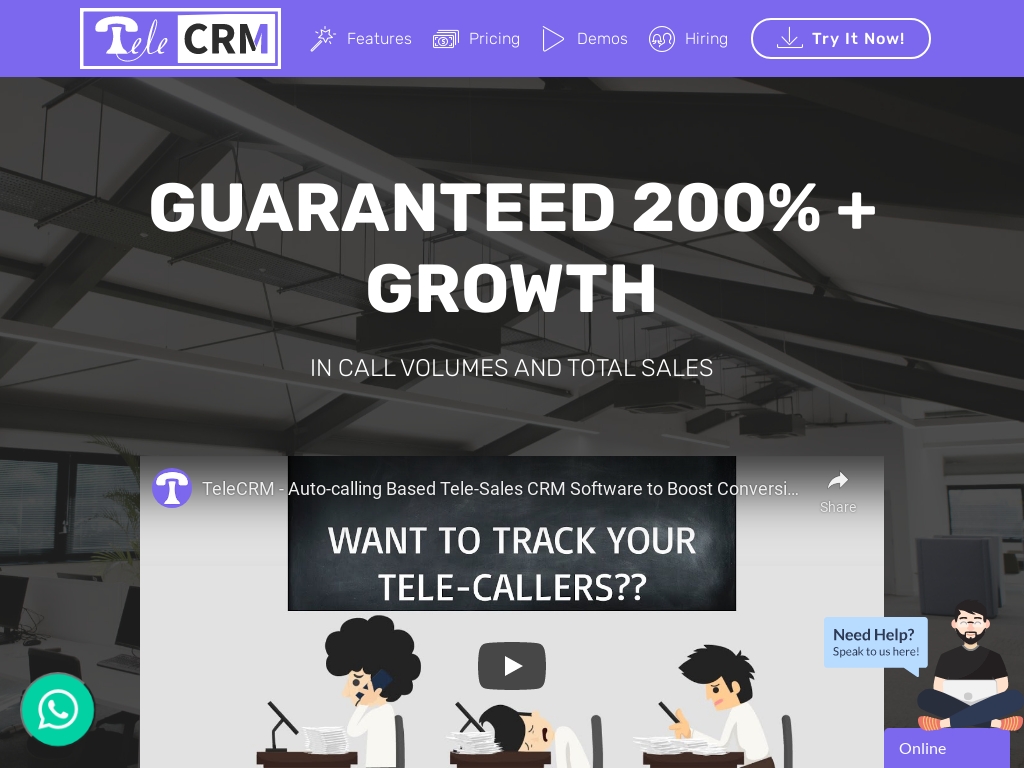

Flamon cloudtech's co-founder Rahul shares the story of building and launching TeleCRM, a game-changing Tele-Sales CRM product in beta phase, which is already being used by 20 companies with a monthly recurring revenue of $4500/month and is aiming to capture around 40-50% of the CRM market space in the long term.





Download the report and join our email newsletter packed with business ideas and money-making opportunities, backed by real-life case studies.

Download the report and join our email newsletter packed with business ideas and money-making opportunities, backed by real-life case studies.

Download the report and join our email newsletter packed with business ideas and money-making opportunities, backed by real-life case studies.

Download the report and join our email newsletter packed with business ideas and money-making opportunities, backed by real-life case studies.

Download the report and join our email newsletter packed with business ideas and money-making opportunities, backed by real-life case studies.

Download the report and join our email newsletter packed with business ideas and money-making opportunities, backed by real-life case studies.

Download the report and join our email newsletter packed with business ideas and money-making opportunities, backed by real-life case studies.

Download the report and join our email newsletter packed with business ideas and money-making opportunities, backed by real-life case studies.










